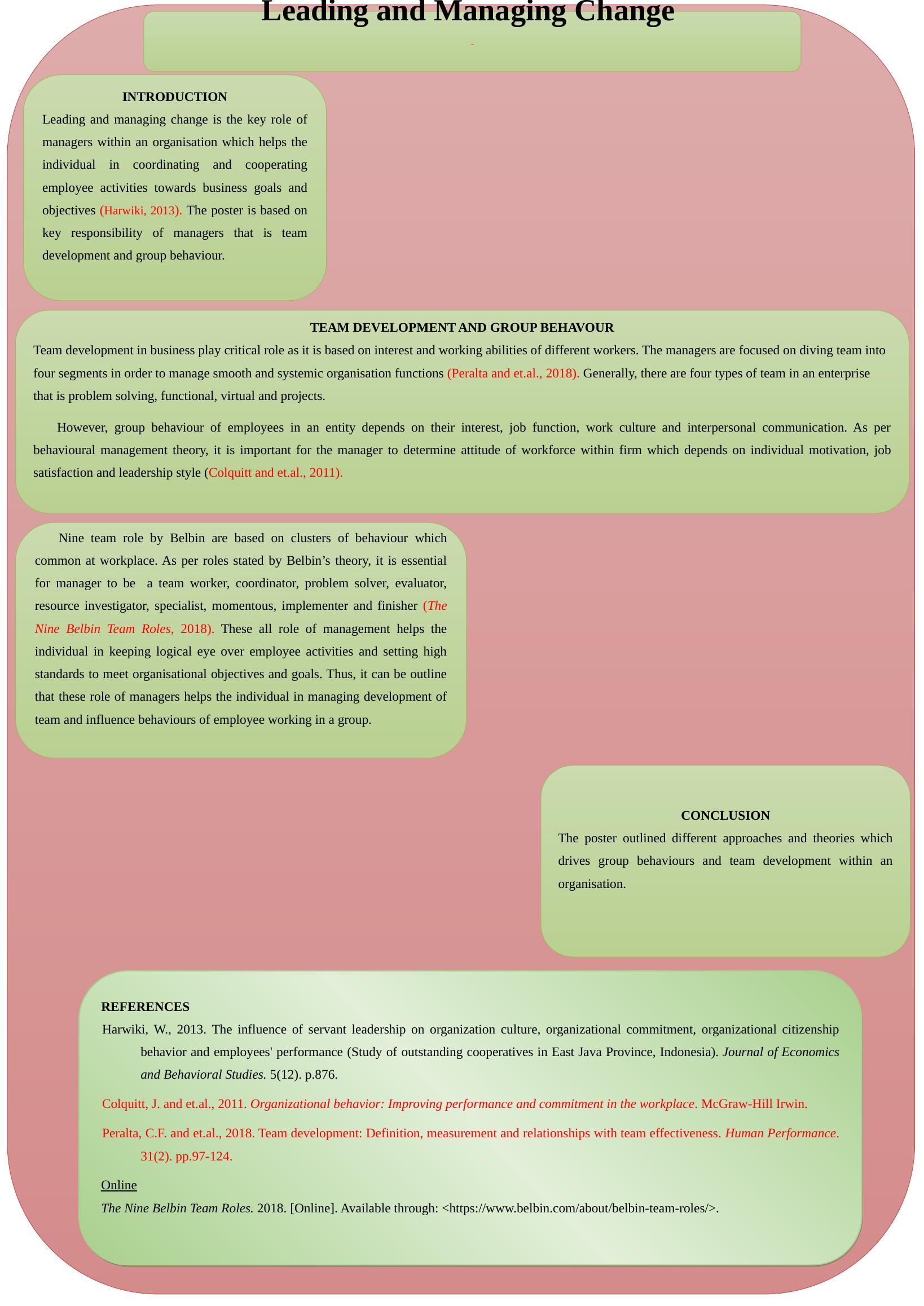Leading and Managing Change : Assignment
Added on 2020-12-09
1 Pages478 Words486 Views
End of preview
Want to access all the pages? Upload your documents or become a member.
Organisational Behaviour: Explaining Effective and Ineffective Teams and Team Development Theories
|16
|824
|75
Effective Teamworking and Communication: Characteristics, Benefits, and Theories
|6
|483
|309
Group Behaviour and Team Development in Organizations
|2
|948
|50
Personal Reflective Journal Report - Enterprise and Opportunity
|13
|4715
|399
Assignments on Teams and Teamwork
|9
|2660
|424
Organisational Behaviour (PDF)
|16
|5297
|32
